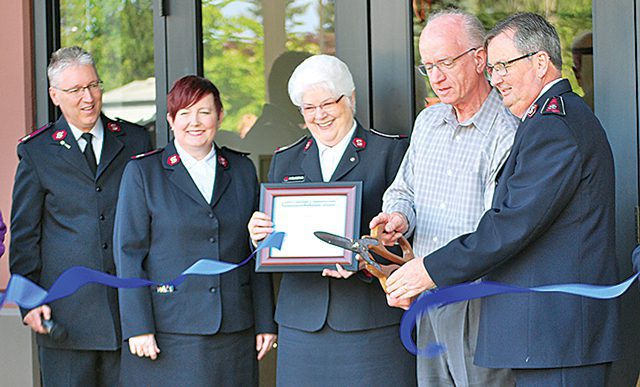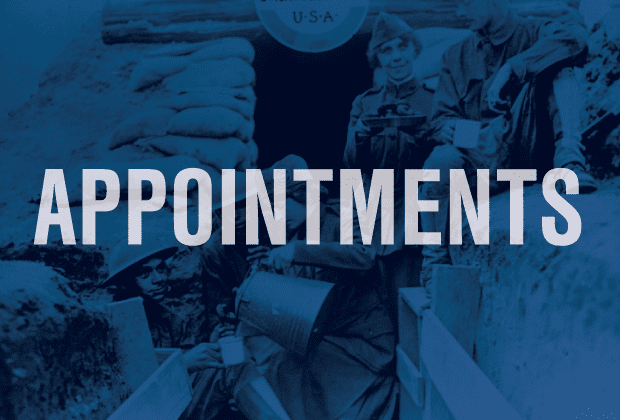By Ronda Gilger, Major –
For the last decade there has been an underground movement afoot called “Primitive Salvationism.”
While both applauded and bashed from different sides of the same room, those who are “sold out” Primitive Salvationists would tell you that it’s a realized vision looking backward and forward, calling soldiers and adherents to recapture the spirit of what it is to be a “Salvationist.”
There is passion and charm in their voices, these crazy dreamers.
They say: “It is not about making saints of our early Salvation Army leaders, or elevating anyone to a position of infallibility. But, we need to make a personal line in the sand that separates us from the mediocrity of merely being connected. There’s a whisper from the past and a voice from heaven that calls us to recapture the entrepreneurial spirit and sense of urgency for souls that all too often fade with time, self absorption and business.”
If the nitty gritty truth were told of those good old days of the early Army I’m not sure you’d find that they were nearly as good as some might suggest. Let’s lay it all out—messy humanity, rescued, called, responding in the place God placed them. Heroic? Historically, socially, culturally, politically, theologically—in a real sense, yes. Godly? I think so. Human and flawed? Absolutely. Used of God? Again, Yes. Can we learn from them? If we choose to, the lessons are there.
Let’s just be careful not to paint them with a magical brush so nostalgic that they are skewed. Salvation Army co-founders William and Catherine Booth were truly as flawed as they were heroic. It is not their persona that needs to be captured and duplicated. It’s the essence of their innovative “God-responsiveness” as they wove the message of the Gospel into the moment of need that lay before them. It’s “how” they answered God’s calling in ways that no one had ever done before.
They took risks, and brought social justice issues out into the open. They counted a cost for sake of the cross, and proclaimed grace to the beat of the drum. What the Booths did worked in Victorian England during the Industrial Revolution, yet the call to “Salvationism” finds relevance in the here and now.
What might tomorrow look like if we personally, individually asked God to re-infuse us with that impatient sense of his mission and if Salvationists responded by surrendering. Marching forward. Obedient. Holy.
It tears against cultural individualism, but this is where it starts—in that place where the heart and will collide with the Spirit.
Doctrines begin to be lived instead of societal values discussed over the table and in the board room. Radical faith washes over us as we “step out” rather than “walk by.” And it asks us to let go and hold on to him, come what may. It calls on all of our senses to truly look into the face of our neighbor, and more than that to act on their behalf.
We cannot be oblivious to the danger faced by the “frog in the frying pan,” unaware and unmoved as the temperature rises one degree at a time. His fate could be ours.
Salvationism is not a membership. Salvationism is not a uniform.
It’s the life blood coursing through The Salvation Army.
The body of Christ at her best.
We will never give up our fight against social injustice.
We will never stop sharing the Gospel of the rescued soul.
We will never stop believing in the second chance or the new beginning.
“Salvationism” may be one of the best expressions of God-inspired, holy innovation within our movement today. It will move us beyond the status quo and calls us to lay our “judging” (not our judgment) aside. It will force us to stretch our own definitions of “the least of these” beyond the obvious.
We are the army of salvation. There is no moment in time when we cease to be The Salvation Army. When we are in the supermarket, we are The Salvation Army. In conversation with our friends behind closed doors, we are The Salvation Army, and when we are in line at the bank, the post office, the DMV, we must remember we are God’s holy Army.
Salvationism might mean laying down a sacred cow now and again for the sake of mission. It’s all right. Take a breath. Wise adaptation, adjustment of methods, remaining faithful to the truth of Scripture, and wrestling with faith amid the culture in which we live. God is calling now. Today. Perhaps we are catching a glimpse of Salvationism 2.1, one version up from “Primitive.” We’re passionate about what lies before us.
Radical faith is costly faith, requiring obedience, surrender and discipline. Read more about this in: Ephesians 1:18; Revelations 2:7; Romans 10:17; Matthew 14:28-29; 1 John 3:8; Acts 26:13-18; Acts 1:8; Isaiah 61:6; 2 Corinthians 4:13; Matthew 18:19; and James 2:18-20, 26.














I think using the word “primitive” is a misnomer that was used simply because of the negative connotations that can be derived from it. A much better descriptive would be “traditional” or even “historical”.
What is at risk of getting lost in any retrospective or nostalgic view of the Army past, is the underlying courage, resolve and self-sacrifice to answer a Holy Call from God to Serve Suffering Humanity so that they can experience personally a reflection of Christ’s love and discover the path to eternal life. The Slum Sisters, the Salvationists of young and “mature” years that served on the front lines of Satan’s Horror, which was the First World War. The selfless Soldiers and our comrades that labor with us, far from recognition and earthly reward. The Officers, Soldiers, Staff and Volunteers that have sacrificed their lives and health to answer the call.
If the trappings of the past serve a purpose today, then use them! Uniforms may not be your personal favorite – but if they get you through the door and past the gatekeepers to those we are called to serve – wear them. If brass music attracts passers-by to draw near and hear the message, use it. If it only serves as an audible form of a high collar uniform, lose it and try something else.